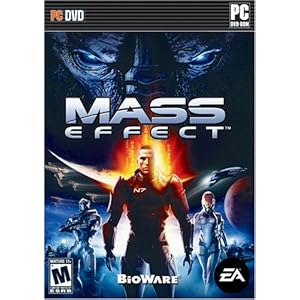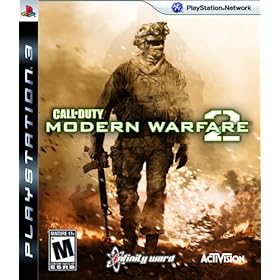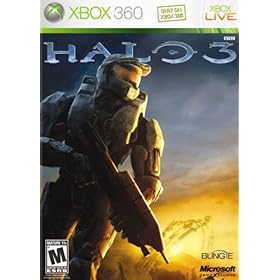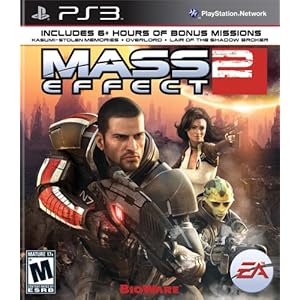Tuesday, February 15, 2011
Thursday, February 10, 2011
The Thing

I wasn't a big fan of the two other John Carpenter/Kurt Russell collaborations I've seen, but this turned out to be quite good. People call it a remake, but much like the recent True Grit, it's more of another adaptation of the same source material. It combines elements of science fiction and horror in a pretty recognizable way, having done poorly on its initial release but since becoming a cult classic and obvious inspiration for a number of other attempts with similar subject matter. It begins with some Norwegians shooting at a dog from a helicopter in Antarctica (the movie specifically mentions that it's winter, so shouldn't it be night the whole time?) before crashing near an American research base and getting killed. That's odd enough to the men stationed there, but things get way worse when they realize that the dog is actually some sort of alien that was recently thawed from the ice that can take other forms. Also, it wants to murder and assimilate all of them.
What follows is a very interesting combination of visceral and cerebral horror as the men constantly worry about whether those around them have already been taking over, while occasionally exposing the monster and fighting off its tentacles and mandibles with flamethrowers and dynamite. The practical creature effects look remarkably good almost thirty years later, and are pretty effective at setting the mood and looking crazily grotesque even if they don't provoke a real physical reaction anymore. But the paranoia of the story is what really works the best about the movie, especially once the survivors' numbers have really dwindled and the possibility that the whole world is at risk looms large. Pretty outstanding apocalyptic ending, too. Russell is pretty bad ass as the station's chopper pilot and de facto leader once things get hairy, and Keith David is good too as possibly Russell's biggest skeptic. You also get to see Wilford Brimley first as a perplexed doctor and then running around like a lunatic smashing things, so that's fun. The Thing is certainly an early example of what can be a lot of fun about R-rated science fiction.
Wednesday, December 8, 2010
Requiem for a Dream

Requiem for a Dream is about as different a film from The Wrestler as you could imagine, at least in terms of style. They're both good, sad films, but they tell their stories in very different ways. They're on completely opposite ends of the naturalism spectrum. Requiem uses the medium of film itself to convey mood, and along with all the stylistic touches it's a very effective technique. Very basically, it's a movie about addiction, as four interconnected all people go from casual users of various drugs to becoming completely addicted and stuck in horrible situations. Time dilation conveys the meaninglessness of time when under the influence, SnorriCam (a camera mounted so it's always looking at the actor's face) shots show disorientation and trauma, and a signature super close-up/fast cut shot depicts the many different ways the characters take their drugs. As they descend deeper into their struggles, scenes get shorter and shorter and the cuts get faster and faster before it all becomes overwhelming to watch, and sort of pulls you into the horrors they are facing.
It's a well-told story, although for whatever reason I found myself struggling to connect with the characters. Maybe it's because I knew they were doomed from the outset, but I found myself intrigued by their struggles rather than concerned. The acting is good - leads Jared Leto and Jennifer Connelly are a likable couple before their need to get high pulls them apart, Marlon Wayans is surprisingly solid as Leto's friend who helps him get involved with dealing, and Ellen Burstyn got an Academy Award nomination for her startling descent from standard old lady to pill popping train wreck. But while the film work was good at putting you in another mindset, it was also at times gimmicky, and seemed to reduce the weight of what was happening when it was trying too hard to be clever. I have an inkling I would have liked it more in high school, but there was something odd about seeing something as heavy as crippling drug addiction often get depicted by cutesy camera cuts. It was less like a film and more like a visual experiment. A really good one, but less effective than it might have been otherwise.
Tuesday, August 31, 2010
Mass Effect

I've mentioned before that Star Wars: Knights of the Old Republic is the game that got me into western RPGs. So I guess it's not a surprise that I quite enjoyed BioWare's return to the science fiction landscape. Mass Effect takes place within its own original universe, although the influences on both the design and the setting from that game and other classic science fiction are obvious. Without being a real expert on the history of the genre, I'd say the two most obvious influences on Mass Effect's world are Star Wars and Star Trek. You have the former's quasi-mystical powers and diverse alien species (Trek has aliens, but they all look like people with weird foreheads), and the latter's more adult focus on politics and how a gathering of races from across a galaxy would form a society and government together. The final result is a bit darker than both at their more adventurous, but the impact is there. There's literally an encyclopedia in the game's pause menu if you ever want to look up details on the history and specifics of pretty much any piece of back story it cares to bring up, and the amount of thought put into everything is one of the game's biggest assets.
You play as Shepard, a customizable protagonist and eventual commander of the most advanced ship in the alliance fleet. The alliance is sort of like a more militaristic Starfleet, except it only represents human interests in the galaxy. There's no real shared military, although the alliance have a working relationship with the council, a multiracial tribunal that operates out of an ancient space station called the Citadel and has influence over many things. I'm really explaining a lot of background here, aren't I? It's an interesting set up. Anyway at the beginning of the game you are given a mission that will require a ship and an elite team, and you report to both the council and the alliance. It's pretty easy to fill out your party, and from there you generally have a choice of planets with important objectives to complete. There are also dozens of optional worlds you can visit, but I'll get to those later. You fight evil robots, help or ignore troubled people you come across, talk a lot, and try to track down and stop the bad guy.
The game likes to pretend sometimes that it's a primarily a cover-based third person shooter, since those have been popular for a few years and were really blowing up when it came out, but it really isn't. Yes, you can hide behind objects and point a target at enemies and click to fire, but success is less determined by an ability to aim and shoot and more by good management of your allies, use of abilities, and having stats good enough for an invisible random variable to decide that your shots hit more than the other guy's. This didn't bother me as much as other people, I just don't see the point of the charade. Knights of the Old Republic's combat system was plenty of fun, and totally honest. You paused the game to assign actions, and chance and numbers determined whether your light saber swings and blaster shots hurt the enemy. Mass Effect playacting as a shooter just distracts from what could have been a more interesting system. I understand that the sequel actually performs like a true shooter, which is a fine direction to take, as it's at least a more genuine attempt to reach beyond the standard number-crunching RPG player.
So while I lived with the combat, what I really liked was simply learning about the different cities and outposts I was exploring, and developing my relationship with the various people in my crew. RPGs always seem to do better at creating a camaraderie amongst an interesting cast of characters than other games, if only because they actually take time to do so. And I liked my crew a lot. I talked to them after every job to see what they thought, and I did all the side quests that tied directly to their characters, not for the rewards, but because I wanted to help them out. They're a diverse group, and while the dialogue was often a bit straightforward, I still felt some level of connection to them that I just don't usually. I found myself choosing who to take on expeditions based on who it made sense to bring, not who would statistically help me in combat the most, and some of the things that happen to some of them later in the story actually made me feel a bit of emotion. It lent weight to the morality system, which is mildly interesting because it determines more what kind of leader you are rather than whether you're good or evil, but otherwise is still pretty standard.
I guess I should mention the game's biggest weaknesses, the silly mini-game that seems to determine a little too much of what happens, and the Mako, a vehicle which popped up way too much based on how much of a headache it was. Frequently when activating objects in the game, you have to solve a little game where you guide an arrow into the center of a circle while objects rotate around it nearby that you have to avoid. Fail to do so, and you either have to try again or pay a material cost to bypass it. It made some sense when trying to break electronic locks, but the game uses it for much more than that, including recovering objects from wreckage and even surveying rocks for minerals. It's a huge pain in the ass and never really makes sense in context. And man, the Mako. It's an armored jeep type thing that goes over a lot of terrain, but it's a gigantic annoyance whenever you have to use it, which is often on required story missions, and always when exploring optional planets for useful objects. It controls like crap, it's not as useful as it feels like it should be in combat, and none of the places you use it in are designed well enough to get past this. It's just a struggle every time you're behind the wheel. It would have been a bigger issue if it was at its worst when it's actually necessary, but thankfully that's not the case.
Beyond those small issues, I had a lot of fun in the twenty hours the game took me. The story was pretty good, conveyed by some decent writing and well acted by the cast, including a smattering of recognizable celebrity voices that fit their parts appropriately. The game's presentation helps immensely, although I was unable to get the full effect of the motion capture thanks to the constantly poor frame rate on my machine. I'll admit it's an old system, but it probably shouldn't have run a three year old game this choppily. BioWare's games have always had odd technical issues on the PC, and I have to imagine it's partly the game's fault as well as my computer's, because I began Dead Space recently, which came out a year later, and it can at least do static conversations smoothly. It was rare for the issues to actually impact gameplay negatively, but it was an unfortunate distraction a lot of the time. It sounded pretty good though, with the previously mentioned voice acting and strong score helping to sell the universe. Whatever problems I had, I wanted to play the sequel as soon as I finished, which is not something I've been able to say much recently. I guess the question is whether I'll play it on PC, or if the way they handle the PS3 version makes it seem worth the switch.
Sunday, November 22, 2009
Call of Duty: Modern Warfare 2

Or just Modern Warfare 2, as Infinity Ward clearly wanted to call it from the fact that the words "Call of Duty" don't appear anywhere in the game or on packaging for special editions. MW2 is the follow-up to the last game the series' actual creators made two years ago, and picks up five years later. The fate of a few characters is left up in there, but main protagonist Soap returns as a grizzled veteran with a voice (Kevin McKidd's) of his own, taking Price's place as ally in the field and friendly voice in your ear during the game's consistently better missions as a British special operative instead of a US soldier. While the first game's antagonist was defeated, the world is still unsafe as some Russian extremists still believe in his cause and conflict continues in the middle east. You still bounce between multiple characters, trotting across the globe to find and kill new people.
The first game seemed at the time to be somewhat plausible, presenting an interesting military plot punctuated by a couple shocking, unexpected moments. Modern Warfare 2 is much more over the top, constantly in your face with plot twists, betrayals, and every action movie gimmick you can think of. It sort of tosses the believability out the window in an early scene intended to disgust the player, and it mostly succeeds at this goal, but at the cost of your superiors looking like bone-headed morons and doing things that a reasonable government would never consider. Later events make you wonder if things were really as they seemed, but still, you can tell that their goal this time was to tell an exciting story, not represent modern conflict on a realistic, global scale. Bits intended to startle or shock the player are more frequent albeit less effective, because you can pull off the same trick so many times before it becomes old hat. There are a few occasions where they play with your expectations successfully and some true surprises, and in the end I accepted what they were doing and enjoyed the ride. It's just clear at this point that the developers' intentions with the franchise have changed.
Like pretty much any Call of Duty game, the missions are a grab back of solid shooting, truly excellent set pieces, and occasional total clunkers. They never seem to be able to stay away from a level or two where the enemies are just too frequent and too accurate and you just get pinned down from every direction, so your frustration just mounts as you continually restart and muscle your way through by memorizing where they come from. Luckily they get that out of the way early this time, and the latter part of the game is characterized by things that are constantly new and exciting. The single player campaign is fairly short, but these days that's a good thing - five to six hours of original, constantly changing, high quality gameplay are more than enough to satisfy anyone who isn't made of free time. Missions where you sneak through enemy territory with a buddy picking off stragglers are always fun, and even the more bombastic levels are enhanced by the somewhat unsettling locations they take place in this time.
The game looks and sounds great as expected. Solid sound with nice effects, good voice from a mix of recognizable names and industry veterans, and music that always manages to fit the appropriate mood. The textures of some unimportant details are surprisingly bland looking, but anything they wanted to look awesome usually does. And for people who don't play Call of Duty for the story mode, the multiplayer looks intact with some new features, and Spec Ops is an interesting way to extend the game's life without implementing actual co-op into their carefully planned single player. Infinity Ward is still setting the golden standard in competitive online shooting on consoles, and they just happened to put the best one player campaign this side of the Half-Life series in there too.
Sunday, January 27, 2008
Halo 3

Halo: still pretty good. The third installment continues the series tradition of good shooting, incremental gameplay improvements, and an interesting story for a shooter. Unfortunately, it also keeps alive some of its faults, like some repetitive tasks and environments, minor steps backward in some areas and the continued inclusion of the highly uninteresting Flood. I get the desire to mix things up so you're not fighting Covenant the whole time, but seriously, the Flood is boring. I like the story aspect of the Elites changing sides, but unfortunately that takes away the most interesting opponent in the series. Brutes are tough but not as smart, making combat a little less strategic in some cases. Having the Arbiter around most of the time is cool though, it's nice to have an ally who's actually worth something. I didn't like how you're arbitrarily limited to two grenades of each type now. Yeah, now there are four types so you still have a max of eight, but when you don't find the last kind until late in the game, you're left holding six most of the time and wondering why you can't fit a couple more normal ones in the same suit.
In general though, Halo is still a really good time. They expanded the vehicle sections, adding multiple new types to play around with. Some of the best fun in the series comes from cruising around, pursuing enemies on large battlefields with explosions happening everywhere. There are new and returning weapons also, and I think they struck a pretty good balance. The game's a little short, but that's okay, I prefer that to pointlessly padding out levels with infinitely copy-pasted corridors. I mentioned repetition, but that's mostly held in check except for the aforementioned Flood and the gigantic walking fortresses known as Scarabs - you encounter them a little too often, although taking one down is pretty cool. Graphically, it's not as flashy as some other current generation games, but it looks nice. There are some really great looking lighting effects, at least. The music is as interesting as ever, and voice acting is decent, although I never like changing voice actors between sequels (is Julie Benz too famous now thanks to Dexter?) and some of the dialogue tries to be cool but is just a little silly. The story is suitably epic and really pretty detailed if you get down into it, and they do a nice job of concluding the trilogy, although I wish there was a real end instead of an obvious sequel hint. Guys, you can make a new story without leaving ends untied. Multiplayer is pretty cool, although I don't really care about online play that much. I don't love Halo, but it's a very solid, entertaining series.
Tuesday, January 8, 2008
Halo 2

Halo 2 is basically a repeat of the first game; a fun, solid, but probably a little overrated shooter, which fixes some of the original's problems but has some of its own. It seems like there's a step backward for every step forward. You now have the ability to dual wield certain weapons, but doing so prevents you from using melee attacks without dropping the second gun or grenades or grenades at all, limiting your diversity in combat. Dual wielding allows for some interesting new strategies and combinations, but overall most of the weapons are less effective that they were before. I liked messing up dudes with the energy sword, but I'm a little annoyed by the Covenant's insistence on their own technological superiority when all of their gear manages to both have finite ammo AND overheat rather quickly. The only thing that seems advanced about it is its impressive curvy and purple design. You can also play around with more vehicles, which are usually pretty fun, although those sections tend to be a little easy.
My biggest complaint about the first game was the tedious, repetitive level design, and they made good strides forward correcting that, with some interesting structures and well-put together set pieces. It tended to limit the scope of some levels, and especially later on it feels a bit like a boring old corridor shooter instead of having the interesting depth of a large, wide-open war zone, and they couldn't seem to help repeating the same level pieces over and over once you get deeper into the new Halo installation, but I thought they did a decent job overall. They elaborate much more on the story, showing things from the Covenant's point of view, and you actually spend a significant amount of time playing as one of them instead of the Chief, though there isn't much difference in gameplay besides the interesting cloaking ability and increased difficulty in discerning friend from foe. Most people hated the cliffhanger ending, and I can definitely see why, as it seems like they're setting up the last mission instead of the sequel, but I knew that was coming so I wasn't bothered. A huge part of Halo's love comes from the multiplayer. I've spent some time with it in the past, and it's enjoyable, I just never like playing deathmatches as much as other people do. Halo's not as fresh as its prequel was for the genre but it's still a good entry in it.


































